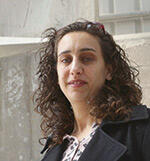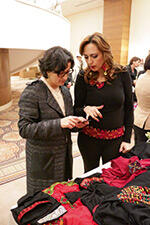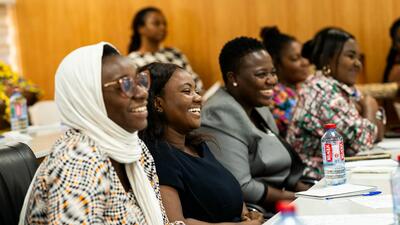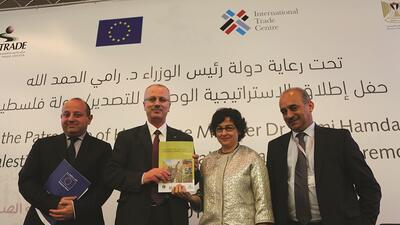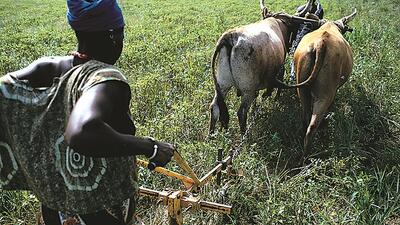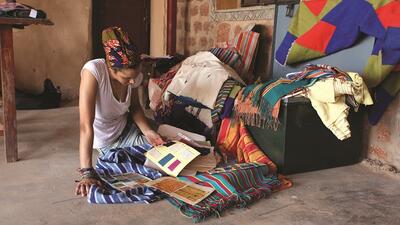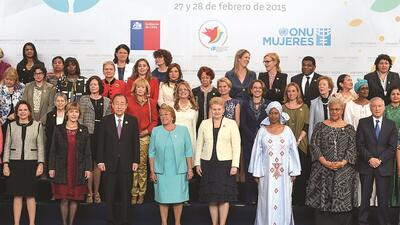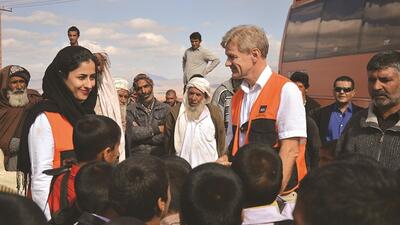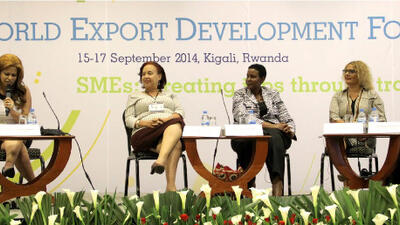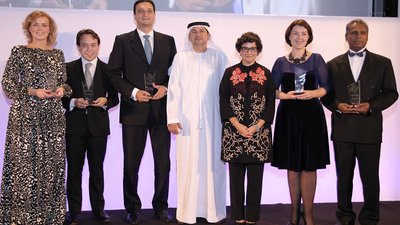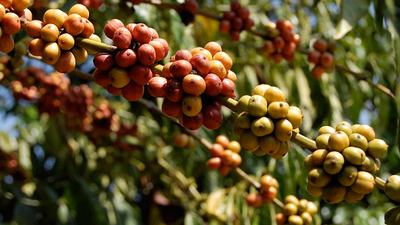Palestine: women beating the barriers to export
For Oriana Nasser, the best measure of the success of her stone-cutting company is how much it exports. And after an uphill struggle, her Jerusalem Stone Group is now exporting to clients all over the world.
Success has not come easily. ‘Nothing is easy to start here in Palestine,’ Nasser says. Running an export company is even harder, since 85% of exports have to go via Israel, from where they are re-exported. This means they must meet Israeli conditions. On top of that, women face still more challenges, since every woman-owned company in Palestine must have a male co-owner.
Nasser got the idea of exporting stones while visiting the United States, where she saw the strong demand for Jerusalem stone – which comprises a range of different limestones. Back at home in Bethlehem, and with her husband as the obligatory co-owner, she started her company, bought stone-cutting equipment, and started work in a rented factory.
'A month after start-up the electricity was cut off because the owner went bankrupt', she recalls. Undaunted, she produced her own power, using stand-alone generators, and then switched to solar panels. 'That was a huge investment', Nasser admits. But business was growing, and sales were increasingly being made in the United States and the Gulf states. 'We decided to move out and build this current factory, which we own,' she recounts.
Production is only part of the problem. Getting the cut stone from Bethlehem to Nasser's markets is even more complicated, because it has to transit through Israel. ‘There are many issues we have to comply with, resulting in burdensome costs,’ Nasser says.
Cut stone destined for export is loaded into containers, and these are then subject to Israeli security checks. ‘One time’, she says, ‘there was not enough space for the dog to sniff around inside the container, and the consignment was sent back to us. We then had to unload and reload the container just to make sure that the dog could enter. And these are costs that we have to bear, not the customers.’
Once through security checks, Nasser’s shipment has to be processed by an Israeli company that provides the fumigation certificate it requires to be allowed into the United States. ‘All this makes for a lengthy procedure, so we have to add time delays into the order,’ she says. ‘If it arrives ahead of time, though, it means we have a happy customer.’
Successful export businesses run by women are a rarity in Palestine. Less than 3% of the exporting companies in Palestine are owned by women, according to the United Nations Development Programme (UNDP). But across Palestine, women entrepreneurs are showing they have ambitions to export their products.
That is why the International Trade Centre (ITC) and UNDP, in partnership with the Business Women Forum-Palestine (BWF), launched a project in early 2014 to empower Palestinian women business owners and to build capacity that would help them sell their goods and services. ‘Enhancing Women SME Development in the State of Palestine’ seeks to increase income opportunities for women across Palestine. The project will create a platform for them to sell their goods with the long-term goal of expanding exports sustainably.
For Jawad al Naji, the Minister of National Economy, ensuring that women take on a greater role in business is crucial to the development of Palestine. 'Palestinian women have historically been part of the economic cycle, although often informally. The Ministry of National Economy has established a gender unit to foster women's participation in economic activities,' he says.
Although women comprise around half the population, female participation in the work force stands at only 17.4%, according to the Palestinian Central Bureau of Statistics. That is significantly lower than the average of 25% in the rest of the Arab world, and among the lowest in the developing world.
'By supporting women entrepreneurs to access more markets, we can contribute to creating a more vibrant Palestinian economy, recognizing that trade has historically always been a central driver for this,' says Helen Clark, Administrator of UNDP.
Her views are echoed by Arancha González, ITC’s Executive Director. ‘This project has the potential to impact far beyond the confines of what we will sign today,’ she said at the launch of the ‘Enhancing Women SME Development in the State of Palestine‘ project. ‘It is a signal that Palestinian women-owned enterprises are "open for business".’
Heidi fashion
A fashion designer for 20 years, Heidi Hannouneh opened a store, Heidi Fashion, in Bethlehem in 2008 to be able to meet increased demand for her products. Since then, Hannouneh has seen growth: today she employs three staff in her store, and a further 14 local women are involved in production of textiles and jewellery.
Her clothes and her jewellery are a mix of the old and new, with traditional embroidery a distinctive feature of much of her work. Hannouneh’s collections have been seen at fashion shows across Palestine: in Nablus, Jerusalem, Ramallah and, of course, in Bethlehem. When she participated in a fashion show in France, orders followed from customers in France and the United States. Her next goal is to see more of her clothes and jewellery being sold beyond Palestine.





